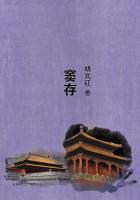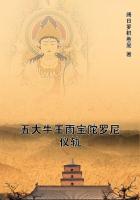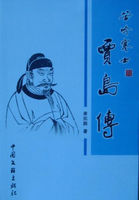Now, too, when we sorrow, we know where to find relief; we learn the spirit of resignation, and under what conditions it may be born.Thank God, then, for the lesson of the lonely garden and the weeping Christ-we, too, may be "made perfect through suffering."Such, then, were the circumstances that illustrate the words of the text.Scarcely had Jesus risen from his knees, and wakened the drowsy disciples, when the light of lanterns flashed upon him, and Judas came with a multitude to bear him to that death from which, but now, he shrunk with agony.But he shrank no more.The trial was over,--the darkness had vanished,--an angel had strengthened him; and when the impetuous Peter drew his sword and smote off the servant's ear, his master turned to him, with the calm rebuke, "Put up thy sword into his sheath; the cup which my Father hath given me, shall I not drink it?" Yes, cold and bitter as that cup was, pressed next to his very lips, he had learned to drink it.God had given him strength, and no more did he falter, no more did he groan-save once, for a moment, when, upon the cross, drooping, and racked with intense pain, he cried out, "My God, my God, why hast thou forsaken me?" But that passed away in the triumphant ejaculation, "It is finished!"Such was the resignation of Jesus; a trait in his character which, like all the rest, is not only to be admired, but imitated;--not an abstract virtue, manifested by a being so perfect and so enshrined in the sanctity of a divine nature that we cannot approach it, and in our mortal, work-day trials can never feel it; but a virtue which should be throned in every heart, the strength and consolation of which every suffering soul may experience.Nay, if there is one virtue which is more often needed than any other, which lies at the base of true happiness, and than which there is no surer seal of piety, it is this virtue of resignation.And let me proceed to say, that by resignation I mean not cold and sullen apathy, or reckless hardihood, but a sweet trust and humble acquiescence, which show that the soul has submitted itself to the Father who knows and does best, and that it meets his dispensations with obedience and his mysteries with faith.The apathy and hardihood to which Ihave alluded are very far from the trust and piety of a religious spirit.The fatalist acquiesces in the course of things because he cannot help it.He has reasoned to the conclusion that his murmuring and weeping will not alter matters and he has resolved to take things as they come.But here is no resignation to the will of God, but to the necessity of things.Here is no faith that all things are wisely ordered, and that sorrow is but the shadow of the Father's hand.No; here is the simple belief that things are as they are, and cannot be altered,-that an arbitrary law is the eternal rule, not a benevolent and holy purpose; and the philosopher would be just as resigned if he believed all things to be under the guidance of a blind fate, whose iron machinery drives on to level or exalt, unintelligent and remorseless, whether in its course it brings about good or evil,-whether it gladdens human hearts or crushes them.Such resignation as this may be quite common in the world, manifested in various phases, and by men of different religious opinions.Do we not often hear the expression, "Well, things are as they are,-we do best to take them as they come;" and here the matter ends? No higher reference is made.The things alluded to may issue from the bosom of material nature, may be sent into the world by chance, or may come from the good Father of all; but the minds of these reasoners reach not so far.Now I repeat, there is no religion and no true philosophy in this method; certainly it is not such resignation as Jesus manifested.In fact, it indicates total carelessness as to the discipline of life, and will generally be found with men in whose thoughts God is not, or to whose conceptions he is the distant, inactive Deity, not the near and ever-working Controller.I cannot admire the conduct of that man who when the bolt of sorrow falls, receives it upon the armor of a rigid fatalism, who wipes scarcely a tear from his hard, dry face, and says, "Well, it cannot be helped; things are so ordered." Below all this there is often a sulky, half-angry sentiment, as though the victim felt the blow, but was determined not to wince,-as though there was an acknowledgment of weakness, but also a display of pride,-a feeling that we cannot resist sorrow, yet that sorrow has no business to come, and now that it has come the sufferer will not yield to it.This, evidently, is not resignation, religious resignation, but only sullen acquiescence, or reckless hardihood.
In a certain sense it is true that we do well to take things as they come,-that we cannot help the eternal laws that control events.But we must go behind this truth.Whence do events come, and for what purpose do they come? What is life, and for what end are all its varied dispensations?
Religion points us up beyond the cloud of materialism, and behind the mechanism of nature, to an Infinite Spirit, to a God, to a Father.All things are moved by infinite Love.
Life is not merely a phenomenon, it is a Lesson.Its events do not come and go, in a causeless, arbitrary manner; they are meant for our discipline and our good.In whatever aspect they come, then, let their appropriate lesson be heeded.This is the religious view of life, and is wide apart from the philosophy that lets events happen as they will, as though we were in the setting of a heady current, and were borne along among other matters that now help us, now jar and wound us,-that happen without order and without object; all, like ourselves, driven along and taking things as they come.In the religious view, all things stream from God's throne, and whatever sky hangs over them, the infinite One is present; prosperity is the sunshine that he has sent, and Faith, as she weeps, beholds a bow in the clouds.















